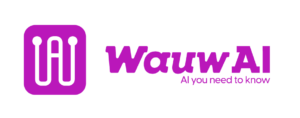
A few days ago, Dario Amodei — CEO of AI research company Anthropic — made a bold prediction:
“In 3 to 6 months, 90% of code will be written by AI.”
Speaking at the Council on Foreign Relations, Amodei didn’t stop there. He added that AI might be writing essentially all code in about a year, with human developers primarily focused on specifying requirements and making high-level design decisions.
It’s the kind of statement that grabs headlines — and sets off debates across the developer world.
Is this the future of programming?
Or is it just another wave of hype?
The tools are already powerful.
Let’s start with the truth: AI coding tools are no joke.
I’ve used Cursor, Lovable, V0, and others for months. These tools can significantly speed up development, especially for repetitive tasks, boilerplate code, and prototyping.
Need to build a quick CRUD app? You can do it in minutes.
Parsing a messy data file? Solve before your coffee cools.
It’s impressive.
But if you ask me whether AI is writing 90% of my code right now?
Not even close.
What the hype doesn’t mention
AI is evolving rapidly, yes. But there are still some fundamental challenges:
1. Real-world problems are messy
In most real-world projects, the biggest bottleneck isn’t writing code — it’s figuring out what to build in the first place. Business requirements are often ambiguous, incomplete, or constantly changing. Translating that into clean, working software still requires a human brain.
2. Complex systems need systems thinking
AI is great at generating small chunks of code — but building entire systems requires architectural judgment. It’s not just about outputting functions — it’s about knowing how they connect, scale, and behave under pressure.
3. Debugging and maintenance are still human work
Yes, AI can help write unit tests and find bugs. But interpreting edge-case errors, fixing flaky tests, or understanding why a system fails in production? That’s still very much human territory.
4. Security and technical debt can spiral
Fast code is great — until it isn’t. AI can generate insecure patterns, introduce subtle bugs, or pile on technical debt if we’re not careful. Someone still needs to think long-term and design responsibly.
So, what happens to developers?
I don’t think we’re going anywhere — but our role is evolving.
The best developers won’t necessarily be the fastest typers or deepest experts in one language. They’ll be the ones who:
- Understand business goals
- Think in systems
- Can ask the right questions
- Know how to guide AI tools effectively
- And yes — still write solid, secure, maintainable code when it counts
In many ways, natural language is becoming the new programming language. How clearly you describe what you want will increasingly define your value as a developer.
What others are saying
There’s no shortage of opinions on Amodei’s prediction.
- Grady Booch, a legendary software engineer, strongly resisted: “Writing code is not the bottleneck. Understanding the problem is.”
- Nat Friedman, former CEO of GitHub, made a similar point: “Developer intuition still matters. So does knowing what not to build.”
- And across the open-source community, people are asking important questions:
Who owns AI-generated code? Can we trust it? How do we stop tools from introducing silent bugs?
The big picture
Amodei’s prediction is bold — maybe too bold. But it points to a real and important shift.
AI is changing how we build software. There’s no denying that.
But it’s not replacing developers — it’s reshaping the job.
The future belongs to those who can combine human creativity with machine intelligence, think critically, design carefully, and collaborate effectively—not just with teams but with AI.
Final thought
We’re moving into a world where coding is less about syntax…
And more about strategy, communication, and vision.
The most valuable developers won’t be the ones who can write the most code —
They’ll be the ones who can ask the right questions.
And in that world, your thinking — not your typing — becomes your true superpower.

